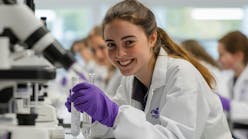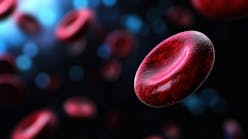Australian researchers are offering a new tool for the early detection of stomach cancer with the identification of four new biomarkers in the blood of human cancer patients. Published in the journal Biochimica et Biophysica Acta, the research focuses on four new proteins that change in concentration in the blood of stomach cancer patients.
“Stomach cancer is typically without symptoms in the early stages, so most cancers are not diagnosed until the later stages, and the survival rates are therefore low,” says Peter Hoffmann, PhD, project leader and Director of the University's Adelaide Proteomics Center.
“Endoscopic investigations are invasive and expensive, and most are generally not conducted until the cancer is at an advanced stage. A non-invasive, inexpensive screening technique through a simple blood test for the early detection of stomach cancer would make a huge difference in the survival outcomes for people with this disease.”
The research shows differences in the four protein levels between serum samples from 37 gastric cancer patients, including 11 early-stage cancer patients, and the controls, which included healthy and non-cancerous patients with other gastric disease. All four proteins—afarmin, clusterin, haptoglobin, and vitamin D binding protein—were individually superior to a current clinical marker, CA72-4, in discriminating stomach cancer from healthy controls. According to Hoffman, “Using the four markers together produces high levels of selectivity and sensitivity in detecting stomach cancer.” Read the study abstract.





